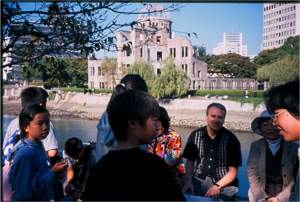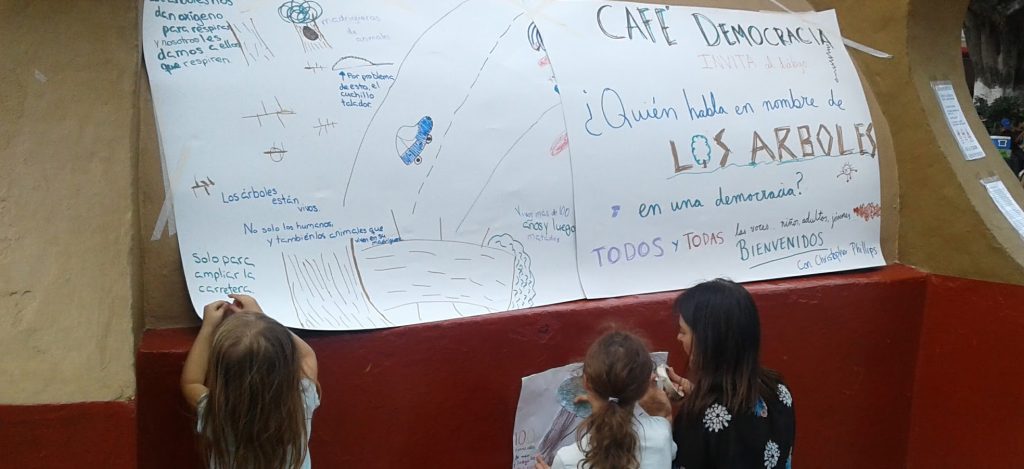This is not a Socrates Cafe-ish post, no timely-timeless exploration of matters philosophical per se, but more of the Democracy Cafe / Declaration Project variety — one that takes on more of the role of the Socratic citizen who challenges complacency against the darker forces that threaten today to undo the democratic mechanisms within our nation’s constitutional fabric (thanks to our Framers) that can still be used to make ours a kind of open society in which the voice of the people can genuinely be heeded and heard.
It’s late (after 2 a.m.) and the luxury of sleep after so many twenty-hour days in a row is something I crave; but I can’t sleep yet, not when so many voices have been silenced forever after the slaughter in Orlando. I despair that a majority of adults will never do the right thing and do what can and must be done to drastically reduce the number of such horrific occurrences. (Do we adults ever imagine, deeply, truly, empathically, in a prolonged and sustained way, what it would be like if this was one of our own children or loved ones gunned down? It’s my experience that, typically, only when we have some close connection to tragedy ourselves are we open to and insistent upon bringing out the change that lessens the possibilities of such occurrences needlessly repeating themselves).
Who is our hope, then? Or at least, where do I, Chris Phillips, ED of Democracy Cafe / Socrates Cafe place my hopes? In children. Kids. Teens. Youth. If only they had the right to vote, to greater self determination, if only they had equal participation in the civic sphere, what a formidable bloc they would become — and they would almost surely insist, I’d wager, in doing what a plurality of adults don’t have the boldness to do. In creating circumstances, among other things, in which we can live our days without worry of being randomly killed by a fanatic of any political or religious stripe. If only they had at least the right to vote on matters of safety, healthy, education, politicians, no matter how reluctant, we adults would have little choice but to give their views serious consideration, maybe even give them a lead role in bringing about the change they want to see in this world in which we jaded adults might tsk tsk, even shed a tear or two after the latest mass killing, but do nothing or next to nothing about.
what a formidable bloc they would become — and they would almost surely insist, I’d wager, in doing what a plurality of adults don’t have the boldness to do. In creating circumstances, among other things, in which we can live our days without worry of being randomly killed by a fanatic of any political or religious stripe. If only they had at least the right to vote on matters of safety, healthy, education, politicians, no matter how reluctant, we adults would have little choice but to give their views serious consideration, maybe even give them a lead role in bringing about the change they want to see in this world in which we jaded adults might tsk tsk, even shed a tear or two after the latest mass killing, but do nothing or next to nothing about.
Our youth can show us the way. Don’t believe? Check out their My Declarations on our Declaration Project site.
They care so much about the state and straits of our nation, and of societies across the globe. If they were given the clout they deserve, they wouldn’t waste a moment in coming up with effective ways to prevent the mass killings of innocents. We adults, as I make the uncomfortable point in my Philosophy of Childing book, have throughout human history made a mess of things, caroming from one adult-induced blunder after another. Children, teens especially, have a malleability of mind, a quick and imaginative and effective response mechanism, a sense of autonomy and astuteness and social conscience, that would, if they could take a lead role, bring our society’s promise more into alignment with actual practice.
How do I know this?
I engaged in deep dialogue with our children and youth all the time, week in and week out. Sure, in my book, to buttress my case, I draw on the latest neuroscience, social science, cognitive science research — but it is all driven by my own observations. Just as they were by Dewey’s. By Jasper’s. By Locke’s. They all agree with me. Let’s listen to these prescient voices. Most of all, let’s listen to, and take the lead from, the prescient and conscientious voices of our youth, so we can work with them to child a society that we would all want to live in. A society in which we can all develop and contribute our talents to the max.
Mark my words. If we are ever to cease this madness, we must recognize the vital role of children and youth in showing us a way out of this morass. Mark my words, and heed them. At this point, really, what do we adults have to lose — and more to the point, what do we have to gain?

